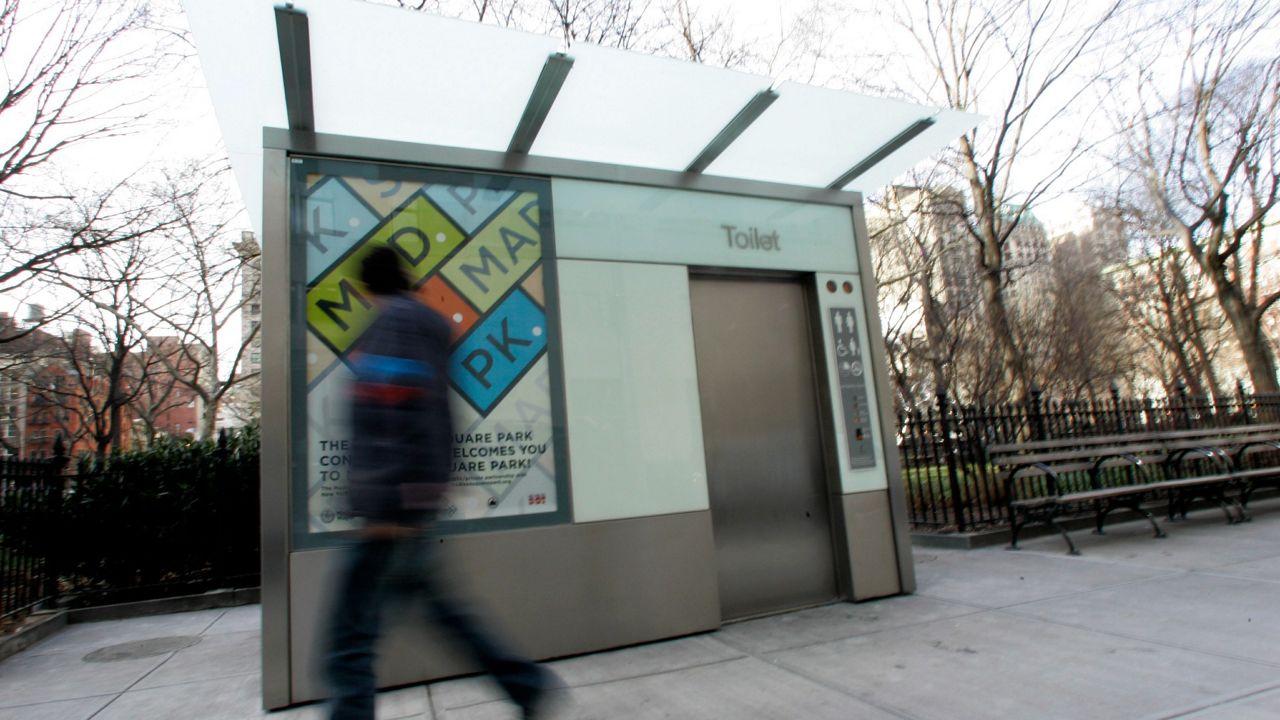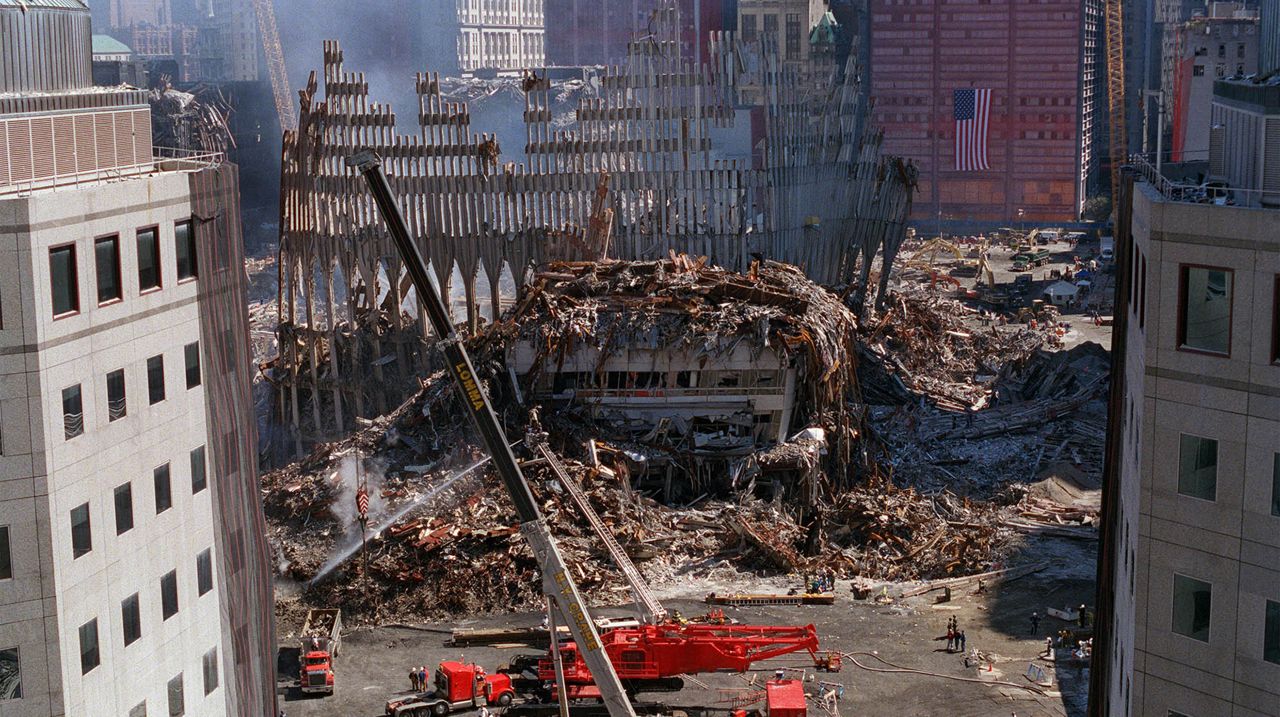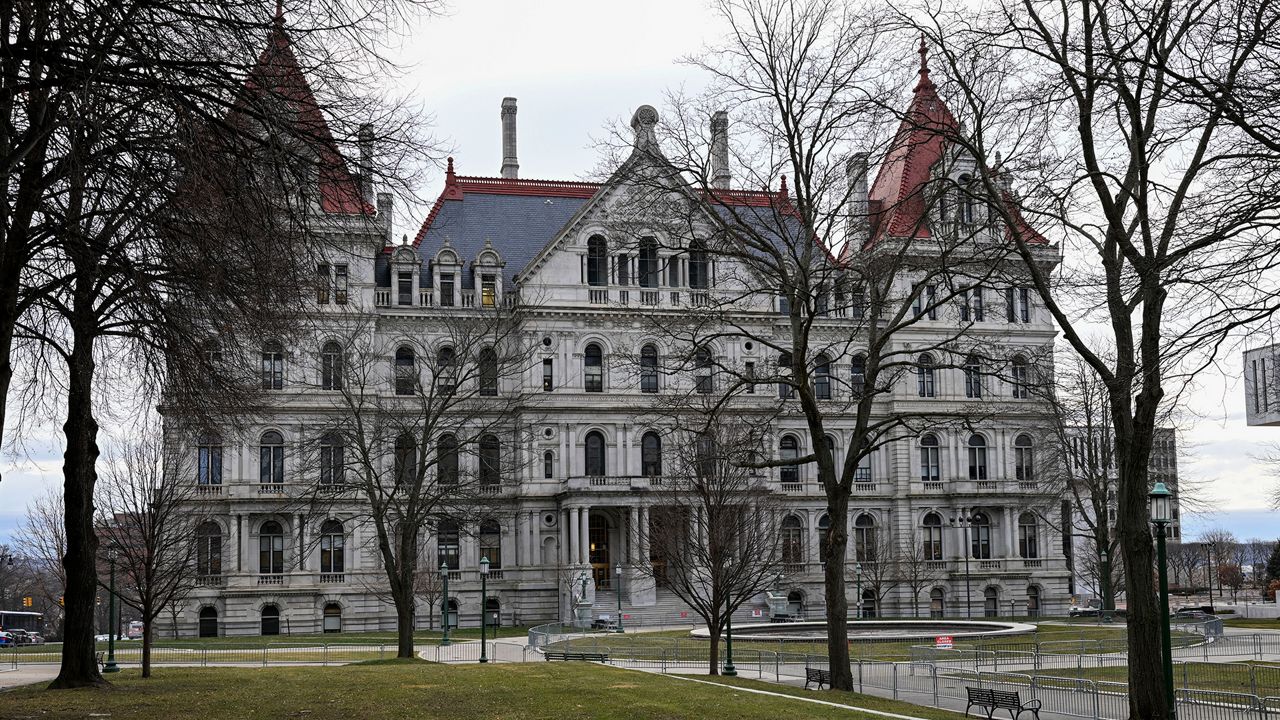Leonard Kahn finds ways to stay active. As of late, it's karaoke.
"Even though I am Jewish, I want to sing 'Ave Maria,'" he told us last week.
Kahn turns 96 in a few weeks. He’s been living in the Hebrew Home at Riverdale for about 14 months.
“If you’re going to sit like this, you can be any place,” he told NY1. “But here, they give you the opportunity and they urge you too. It’s not just the opportunity. You have to make friends and talk to people.”
Kahn moved in to a nursing home following a brutal time for the industry, which was reeling from the COVID-19 pandemic and staffing shortages.
According to state data, almost 19,000 nursing home residents have died or are presumed to have died with COVID. Hebrew Home was hit hard.
“Beginning in March 2020, we were in a wildfire,” said Daniel Reingold, the president and CEO of Riverspring Living, which operates the Hebrew Home at Riverdale. “We were operating without any of the support of the government. We, meaning all the nursing homes in New York state, were faced with a situation where we were political pawns between our ex-governor and the president. We were not permitted to have gear. We were not permitted to test. And that was a shame because we know how to take care of infectious diseases. We know how to use gear, and we know how to test and keep people safe.”
NY1 asked how many people they lost.
“I don’t really want to talk about numbers,” Reingold said, his voice breaking. “Each person is a life. We lost people. We were lucky we didn’t lose any staff. And people died at home because they didn’t have the kind of support that we did."
According to the state Department of Health, 137 people died at Hewbrew Home with COVID.
Reingold said the pandemic only exposed the vulnerabilities in the industry.
“We’re getting old and we’re having chronic conditions, and we’re living longer and our system doesn’t have the staff,” he said. “It doesn’t have the resources. It doesn’t have the facilities to manage 10,000 baby boomers turning 65 every single day. Shame on us as a country for not realizing what’s going on with this older population and taking steps 10 years ago to get ready for it.”
Part of that is staffing. Since 2019, residential care facilities in New York have lost more than 32,000 jobs, according to federal data — chronic staffing issues that continue to plague the industry.
“Staffing is always a challenge,” said Annmarie Ramos, director of nursing at Holliswood Center in Queens. “We are all competing for the same people. We are always trying to get people to come in and stay. I think with covid that’s the biggest change.”
NY1 asked if they were understaffed now.
“No, no, we’re actually doing really well with our staffing,” she said. “I am really proud to say Holliswood has been doing really well.”
Holliswood is one of many nursing homes now being sued for its treatment of patients during the pandemic.
It’s one of several facilities being targeted by the state attorney general for misuse of public medicaid and medicare funds, claiming the owners enriched themselves instead of caring for residents. According to the lawsuit, in the first two months of the pandemic, 22% of Holliswood’s residents died from COVID-19.
It argues, staffing here reached crisis levels, resulting in real risk for patients, like unattended falls resulting in serious head or neck injuries.
Officials at Holliswood would not comment on the lawsuit, just stating the claims in it were “spurious.”
There is now an independent monitor overseeing the center, according to the attorney general’s office. The lawsuit, though, continues.
Residents NY1 spoke to, like Troy Palmer, said they are now getting the care they need.
“Since I have been here, I have accomplished a lot,” Palmer said. “I couldn’t walk when I came here, but due to the excellent work of the physical therapy people, I am able to walk now. I use my walker now more than I use my wheelchair.”
Holliswood officials said they are more prepared for the next crisis. They have a trailer full of PPE in the back.
Back in the Bronx, they too are ready. But they’d love to see a bit more help.
“Government has to become a partner,” Reingold said. “They have to get involved and provide the resources.”
In fact, nursing home management and unions are joining forces to try to lobby the state legislature and the governor to increase Medicaid reimbursement rates in this year’s budget. A spokesperson for the governor’s budget office told NY1 that proposal has not been included in the governor’s plan.









